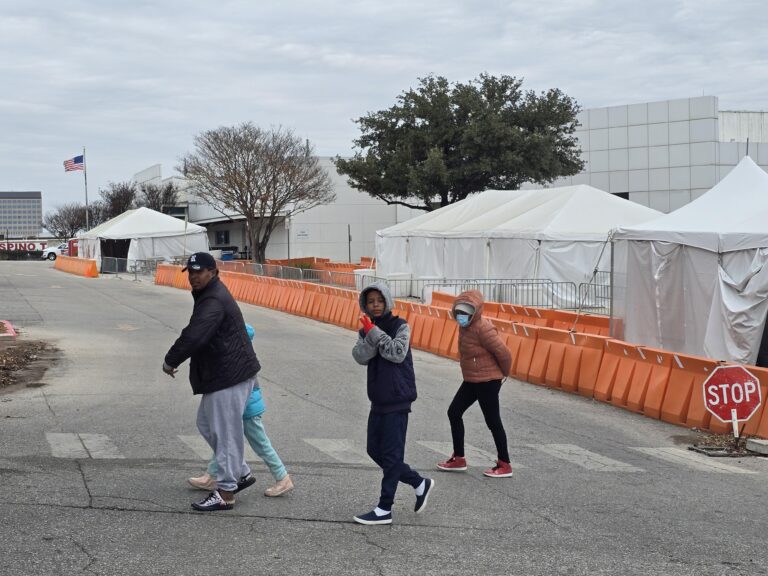San Antonio Braces for Increased Deportation Actions Amid Heightened Federal Enforcement
Community Mobilization in San Antonio to Support Immigrant Residents
As federal immigration enforcement intensifies across the United States, San Antonio is proactively organizing to assist undocumented residents who may face deportation. Local nonprofits, faith-based organizations, and community centers have amplified their efforts to provide critical services such as legal counseling, emergency shelter, and financial assistance. These groups have expanded outreach initiatives, hosting frequent educational sessions to inform residents about their legal rights and preparedness strategies in the face of growing uncertainty.
In addition, city agencies and nonprofit partners are developing a coordinated rapid response system to monitor and aid individuals affected by immigration enforcement activities. The table below highlights recent investments made over the last six months to bolster resources in Bexar County in anticipation of increased deportation operations:
| Resource | Funding Allocated | Projected Reach |
|---|---|---|
| Immigration Legal Clinics | $275,000 | Assistance to over 600 families |
| Temporary Housing Facilities | $175,000 | Capacity for 250 individuals |
| Community Education & Outreach | $120,000 | Monthly sessions across 6 neighborhoods |
Unified Call from San Antonio Leaders for Enhanced Legal and Social Support
In response to the anticipated wave of deportations, San Antonio’s elected officials and community advocates have come together to demand a well-organized support infrastructure. They stress the importance of establishing a comprehensive network that includes rapid-response legal teams and culturally sensitive outreach programs to ensure immigrant families receive timely assistance and understand their rights.
A newly proposed city task force aims to improve collaboration between government agencies, free legal clinics, and community organizations. Key priorities identified by local leaders include:
- Round-the-clock legal helplines staffed by immigration attorneys and rights educators
- Neighborhood-based workshops targeting areas with high immigrant populations
- Emergency shelter systems to support families affected by enforcement actions
- Multilingual communication strategies to ensure accessibility of vital information
| Service Area | Lead Organization | Contact Information |
|---|---|---|
| Legal Assistance | San Antonio Immigrant Rights Coalition | +1 (210) 555-4321 |
| Emergency Housing | Harbor Safe Network | +1 (210) 555-8765 |
| Community Engagement | Latino Unidos Alliance | +1 (210) 555-3456 |
Family Stability and Economic Concerns Drive Policy Debates
The looming threat of mass deportations has sparked widespread apprehension among San Antonio’s immigrant communities, where many families face the risk of separation. Parents express deep worries about the psychological effects on children and the potential disruption to their education and social development. Schools and community organizations report heightened stress levels among students with undocumented family members, underscoring the urgent need for protective interventions.
From an economic standpoint, the consequences could be substantial. San Antonio’s workforce heavily depends on immigrant labor, especially in industries such as hospitality, construction, and agriculture. Experts warn that the following challenges may arise:
- Labor shortages leading to increased operational expenses
- Decline in consumer spending impacting local small businesses
- Interruptions in supply chains critical to regional industries
| Industry | Percentage of Immigrant Workforce | Projected Job Loss Severity |
|---|---|---|
| Hospitality | 42% | Severe |
| Construction | 38% | Moderate to Severe |
| Agriculture | 53% | Severe |
| Retail | 28% | Moderate |
Advocacy Groups Push for Stronger Protections and Emergency Preparedness
Legal advocates, community organizers, and immigrant rights groups in San Antonio are urging for immediate enhancements to protective measures as deportation activities escalate. They emphasize the necessity of expanding legal aid services, increasing multilingual resources, and fostering stronger partnerships between local authorities and immigrant support organizations to mitigate the impact on families.
Key proposals from these groups include:
- 24/7 access to legal assistance provided by experienced immigration lawyers
- Emergency housing networks to shelter displaced individuals and families
- Rapid information-sharing systems to keep communities informed in real time
- Community education initiatives focused on rights awareness and preparedness
| Initiative | Objective | Anticipated Outcome |
|---|---|---|
| Expansion of Legal Services | Ensure due process and legal representation | Lower risk of unjust deportations |
| Emergency Shelter Programs | Provide immediate refuge for displaced persons | Reduce homelessness and family separation |
| Information Dissemination Campaigns | Raise awareness of immigrant rights | Empowered and informed communities |
Conclusion: Navigating Uncertainty with Community Resilience
As San Antonio confronts the possibility of widespread deportations, the city’s diverse population faces a period of significant uncertainty and challenge. Local government, advocacy groups, and residents are actively seeking solutions to support affected families and preserve the social and economic vitality of the region. The coming weeks will be pivotal in shaping how San Antonio responds to this complex issue, balancing enforcement realities with humanitarian and community needs. Ongoing coverage will continue to track developments and highlight efforts to protect the city’s immigrant communities.




